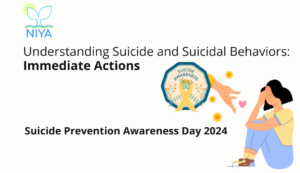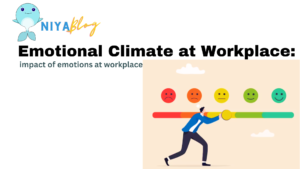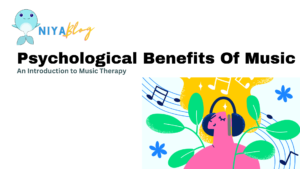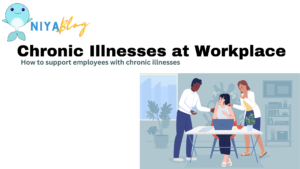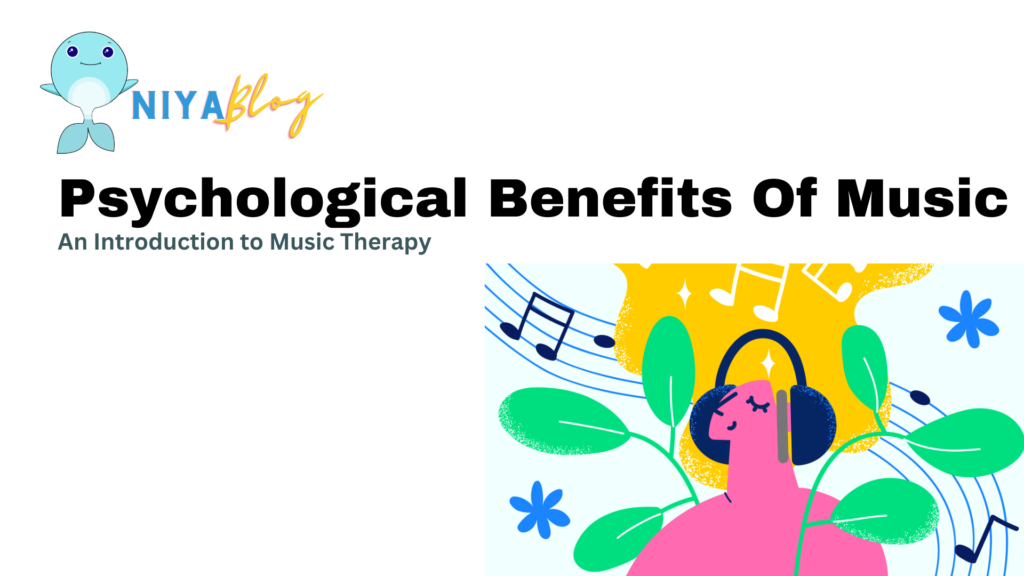
A specific song, tune, or rhythm may trigger an immense sense of nostalgia and comfort, or the lyrics of a song may be so powerful that it may foster change in any direction. After all, Beethoven did say, “music can change the world”. The majority of us enjoy music. Be it rock and roll, jazz, blues, country or classical, it has the ability to not only entertain, but also enhance mental wellbeing. In fact, a rich body of evidence-based data about the benefits of music laid the foundation for the development of a novel yet effective interventional approach called music therapy.
Current data points to the enrichment of cognitive function. Music can improve your memory and your ability to process information faster (Gold, Frank., Boger, and Bratico, 2013). This might make you consider turning on some music in the background whilst working on an important activity. However, choosing the right kinds of music is essential so that it serves as a performance enhancer as opposed to becoming a distraction. For instance, even paced and calm tunes or instrumentals may aid in focusing your attention toward a specific activity.
In line with popular belief, it has been scientifically proven that music plays a role in managing and alleviating stress and anxiety. Listening to music promotes a faster psychophysiological recovery from a stressor (Thoma, La Marca, Bronimamn, Finkel, et al, 2013). In essence, it helps improve mood, and brighten your day. Music plays a significant role
in pain reduction by stimulating the sensory pathways that compete with pain pathways, and thereby triggering emotional responses (University of Utah pain research center, 2012). Psychologically, it serves as a distraction against the pain. An interesting study revealed that patients who listened to music before, during or post-surgery experienced better outcomes (Hole, Hirsch, Ball, and Meads,2015).
Additionally, music helps you sleep better, it keeps you more motivated, and can reduce signs of depression (Cherry, 2022). The impact of music on mood depends on the type of music you choose to listen to. Studies point to classical and instrumental music as mood elevators. All of the gym enthusiasts out there would be thrilled to find out that music does increase work out pace and endurance by reducing the awareness of exertion. The same logic can technically be applied in a work setting to focus attention on an activity that requires long hours of cognitive exertion. In other words, it can aid in reducing cognitive fatigue.
Finally, music can be a form of non-verbal self-expression. An individual’s taste in music says a lot about their ability to deduce and analyse different lyrics, and what those songs mean to them. More often than not, it can also be the passageway into an individual’s emotional world.
Music therapy:
Before concluding, it is important to delve deeper into what music therapy is, and its various characteristics. First, it is important to distinguish between music and sound therapy. Music therapy involves a patient’s active involvement in the creation of music, listening to music, dancing to music, singing music, and discussing music. On the other hand, sound therapy uses specific tools to attain different sound frequencies (Wong, 2023). Anyone can engage in music therapy, and it is not confined to specific psychopathologies. Music therapy relieves stress, stimulates the production of endorphins, fosters interpersonal interactions, and boost work performance by strengthening motor and communication skills. This unconventional form of therapy can be particularly useful for individuals with mild disturbances or as an add on for those already involved in an intense treatment program.
Music therapy has emotional, physical, cognitive, spiritual, psychological, and social benefits. Additionally, considering musical skills are not a prerequisite, anyone can engage with it.
Physiological benefits of music therapy:
-
- Lowers high blood pressure and respiration rate.
-
- Improves motor functioning.
-
- Promotes weight gain and sleep amongst premature infants.
-
- Promotes better motor functioning amongst those with Parkinson’s.
-
- Helps individuals with asthma cope with their episodes.
-
- When am individual experiences anxiety. they tend to experience muscle tension as a consequence. Thus, music therapy can help alleviate muscle tension.
-
- Music therapists regularly visit hospitals and work with individuals who suffer from chronic illness or pain because music therapy helps manage pain by serving as a distraction and producing endorphins.
Psychological benefits of music therapy:
-
- Enhances self-regulation.
-
- Increases feelings of joy.
-
- Increases motivation and will.
-
- Stimulates self-introspection.
-
- Enhances memory.
-
- It blunts symptoms of dementia.
-
- Fosters a sense of control over the self, future, and the environment.
-
- Elevates mood.
-
- Fosters the development of coping skills for stress.
-
- Blunts the symptoms of depression.
-
- Aids in the release of pent-up emotions.
Social benefits of music therapy:
-
- Experiencing music with others in itself is a very calming experience, and it helps in the development and maintenance of bonds with other individuals.
-
- Music therapy can help enhance communication and social skills.
-
- It helps children on the autism spectrum enhance their communication skills.
The process of music therapy:
You might be wondering how exactly music therapy works. Here is a brief explanation of a conventional music therapy model. However, music therapy is used differently with different patients depending on their needs.
-
- Before beginning the session, the therapist may ask you to discuss your emotional, physiological, cognitive, and social functioning. Additionally, the therapist may ask you about any past trauma or triggers.
-
- After the initial discussion, the therapist may discuss your musical preferences and skills. This will aid in creating an efficient musical intervention. Musical interests, age, physical and cognitive abilities, and triggers are taken into consideration before developing a therapeutic plan.
-
- A typical intervention includes creating music, singing music, listening to music, using your body to experience music (from simple taps to a complex coordinated dance), discussing lyrics, and playing instruments.
We appreciate that you have gotten this far into the article and will not overdose you on more enticing facts about music. However, we do hope that the next time you hit that play button on Spotify, you think of how you are being enriched from within. If you ever find yourself struggling with any aspect of life, you might want to consider contacting Niya. The Niya app allows for therapeutic access anytime and anywhere via chat and video calls. It aims at benefiting both individuals and organizations. Your confidentiality will be ensured as the enhancement of your performance and overall health and happiness is our top priority. Contact us to seek further guidance about the services provided by us.
References
Chery, K. (2019, December 10). How listening to musiccan have psychological benefits.
Verywell Mind; Verywellmind.
Gold, B. P. , Frank, M. Bogert, B., & Brattico, E. (2013). Pleasurable music affects reinforcement learning according to the listener. Frontiers in Psychology, 4. https://doi.org/10.3389/fpsyg.2013.00541
Palladium Private. (2018, November 26). 6 Benefis Of Music For Your Mental Healh.
Palladium Private Retreat.
Study Assesses Pain Relieving Bemefits from Music. (2012, January 6). University of Utah Health
University of Utah Health. https://healthcare.utah.edu/press-release/2012/01/study-assesses-pain-relieving-benefits-music #:~:text-Music%20he!ps%20reduce%20pain%20by
Thoma, M.V., La Marca,R, Brönnimann, R, Finkel, L, Ehlert, U., & Nater, U.M. (2013). The Effect of Music on the Human Stress Response. PLoS ONE, 8(8), e70156.
https://doi.org/10.137 1/journal.pone.0070156
Wong, C. (2021, July 14). The Benefits of Music Therapy. Verywell Mind; Very well mind.
https://www.verywellmind.com benefits-of-music-therapy-89829
Cleveland Clinic. (2020, November 24). Music therapy: What is it, types & treatment.
Cleveland Clinic. https://my.clevelandclinic.orghealth/treatments/8817-music-therapy #:-~:tex-Music%20therapy%20is%20the%20clinical

